
Athuruga Island: A Paradise in the Maldives
Athuruga Island, nestled in the heart of the Maldives, is a stunning paradise that offers a unique blend of natural beauty and luxurious comfort. This idyllic island is surrounded by crystal-clear turquoise waters, pristine white sandy beaches, and vibrant coral reefs teeming with marine life. Whether you're looking for a relaxing getaway or an adventurous vacation, Athuruga Island provides the perfect setting for both. Visitors can enjoy a range of activities, from snorkeling and diving to explore the rich underwater world, to simply lounging on the beach and soaking up the sun. The island boasts luxurious overwater bungalows and beach villas, ensuring a comfortable and memorable stay. The local cuisine, featuring fresh seafood and tropical fruits, adds to the overall experience, making it a feast for both the eyes and the palate. Athuruga Island is not just about relaxation; it also offers cultural experiences that give visitors a glimpse into the Maldivian way of life. Local excursions, traditional music, and dance performances enrich the visit, making it more than just a beach holiday. The friendly and welcoming locals ensure that every visitor feels at home in this little slice of paradise.
Local tips in Athuruga Island
- Book your overwater bungalow early as they are in high demand.
- Bring reef-safe sunscreen to protect the delicate marine ecosystem.
- Consider visiting during the off-peak season for fewer crowds and better rates.
- Take advantage of the free snorkeling gear provided by most resorts.
- Learn a few basic phrases in Dhivehi to enhance your cultural experience.
Athuruga Island: A Paradise in the Maldives
Athuruga Island, nestled in the heart of the Maldives, is a stunning paradise that offers a unique blend of natural beauty and luxurious comfort. This idyllic island is surrounded by crystal-clear turquoise waters, pristine white sandy beaches, and vibrant coral reefs teeming with marine life. Whether you're looking for a relaxing getaway or an adventurous vacation, Athuruga Island provides the perfect setting for both. Visitors can enjoy a range of activities, from snorkeling and diving to explore the rich underwater world, to simply lounging on the beach and soaking up the sun. The island boasts luxurious overwater bungalows and beach villas, ensuring a comfortable and memorable stay. The local cuisine, featuring fresh seafood and tropical fruits, adds to the overall experience, making it a feast for both the eyes and the palate. Athuruga Island is not just about relaxation; it also offers cultural experiences that give visitors a glimpse into the Maldivian way of life. Local excursions, traditional music, and dance performances enrich the visit, making it more than just a beach holiday. The friendly and welcoming locals ensure that every visitor feels at home in this little slice of paradise.
When is the best time to go to Athuruga Island?
Iconic landmarks you can’t miss
Republic Square
Explore the serene Republic Square in Malé, a city park perfect for relaxation, cultural immersion, and picturesque views of the Maldives.
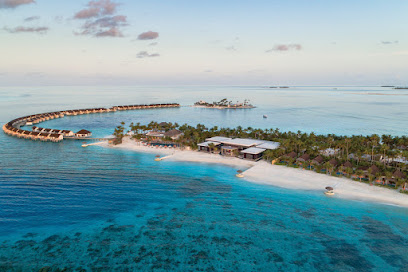
Diamonds Athuruga Maldives Resort & SPA
Discover unparalleled luxury and natural beauty at Diamonds Athuruga Maldives Resort & SPA, an exquisite retreat in the heart of the Maldives.
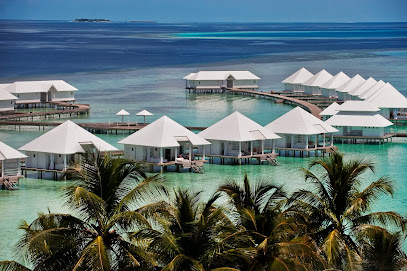
Tsunami Monument
Visit the Tsunami Monument in Malé, a poignant tribute reflecting the strength and resilience of the Maldivian people after the 2004 tsunami disaster.
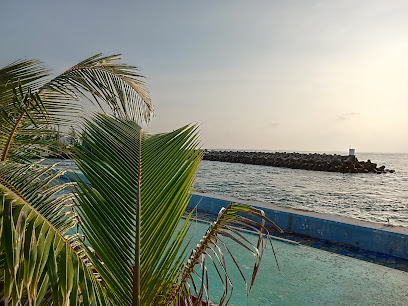
Unmissable attractions to see
Six Senses Laamu
Discover the ultimate luxury escape at Six Senses Laamu, where pristine beaches meet eco-friendly luxury in the heart of the Maldives.

Maldive Islands
Explore the breathtaking beauty and tranquility of the Maldive Islands, a tropical paradise with stunning beaches and vibrant marine life.
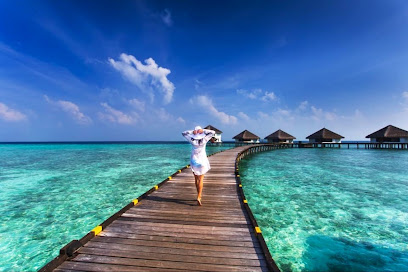
Velassaru Maldives
Discover the ultimate island escape at Velassaru Maldives, where luxury meets nature in a tropical paradise.

Cocogiri Island Resort
Experience the enchanting beauty of Cocogiri Island Resort, a luxurious escape in the Maldives with stunning beaches and vibrant marine life.
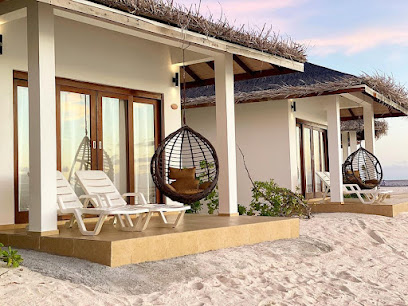
Safari Island Maldives
Discover the ultimate tropical paradise at Safari Island Maldives, where luxury meets nature in a stunning resort experience.

Rihiveli Maldives Resort
Experience luxury and tranquility at Rihiveli Maldives Resort, a paradise in the heart of the Maldives with stunning beaches and endless activities.
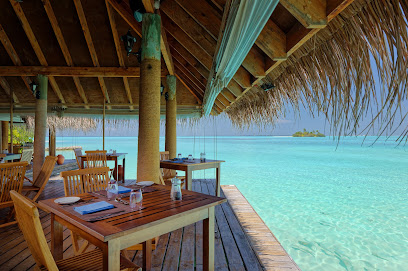
Kudahuvadhoo
Discover the serene beauty and rich culture of Kudahuvadhoo, a hidden gem in the Maldives perfect for relaxation and adventure.
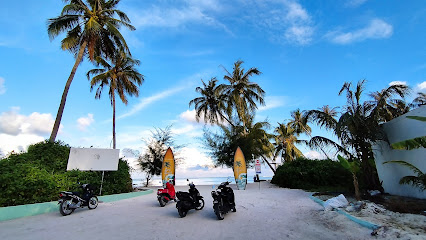
Sea of Stars
Experience the enchanting Sea of Stars in Vaadhoo, Maldives, where bioluminescent waters create a stunning natural spectacle under the night sky.
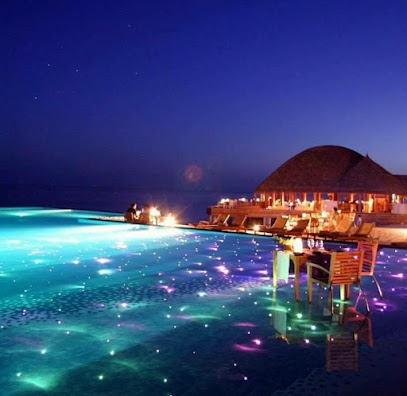
Fari Islands
Explore the breathtaking Fari Islands in the Maldives, where luxury meets nature in a tropical paradise perfect for relaxation and adventure.
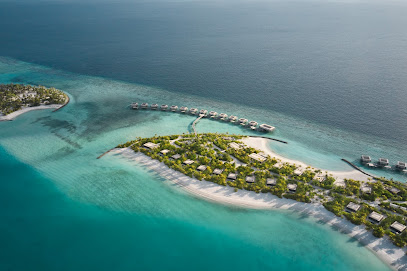
Mahibadhoo
Explore Mahibadhoo Island, a tranquil paradise in the Maldives, perfect for relaxation, adventure, and cultural immersion amidst stunning natural beauty.
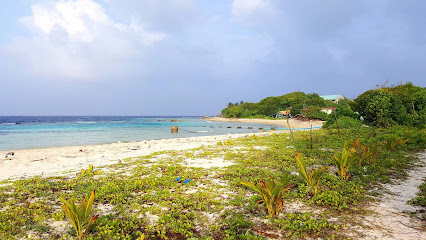
Huluwalu
Explore the pristine beauty and tranquil atmosphere of Huluwalu Island, a hidden paradise in the heart of the Maldives.
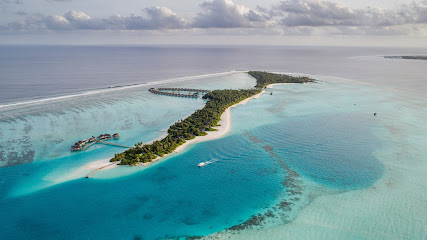
Alidhoo
Experience the tranquility and natural beauty of Alidhoo Island in the Maldives, a perfect destination for relaxation and adventure.
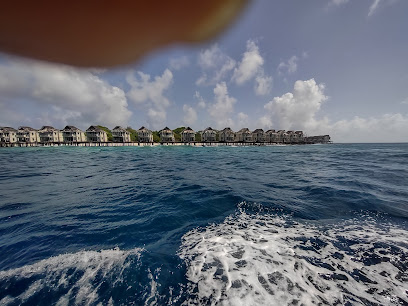
Best Dives Fushifaru
Explore the stunning underwater paradise of the Maldives at Best Dives Fushifaru, where unforgettable diving adventures await every visitor.
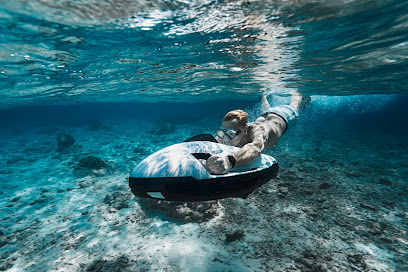
Essential places to dine
Sea House Café
Experience authentic halal Asian cuisine at Sea House Café in Malé – where every meal tells a story.
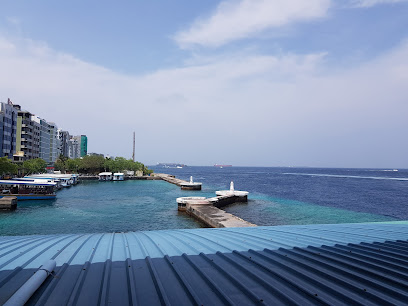
Black Anchor Restaurant
Savor exquisite flavors at Black Anchor Restaurant in Thoddoo - a must-visit culinary destination in the Maldives.
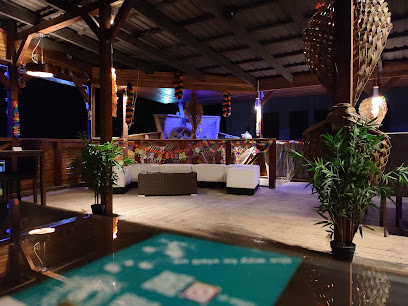
5.8 Undersea Restaurant
Experience exquisite dining beneath the waves at 5.8 Undersea Restaurant - where gourmet cuisine meets stunning underwater views.
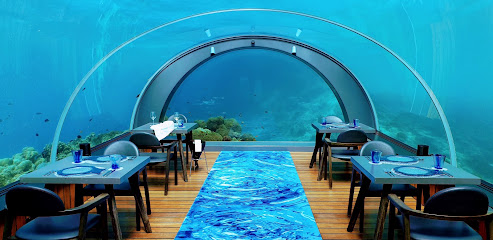
Ithaa Undersea Restaurant
Ithaa Undersea Restaurant: An extraordinary dining experience surrounded by breathtaking marine life in the heart of the Maldives.
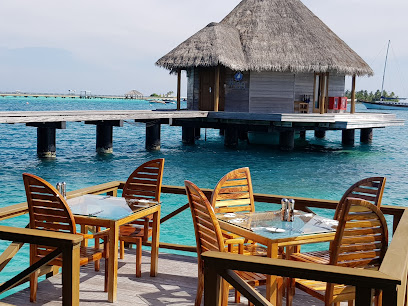
Khanji Maldives
Discover authentic Pakistani barbecue delights at Khanji Maldives in Hulhumalé - a must-visit for food lovers!
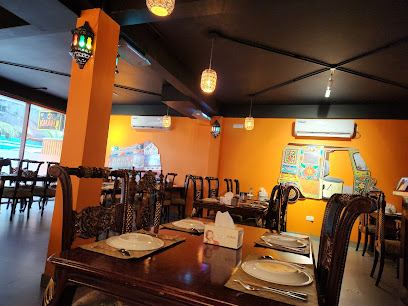
MELON RESTAURANT by Maladiwa
Discover authentic Maldivian cuisine at Melon Restaurant in Maafushi, where fresh flavors meet breathtaking views.
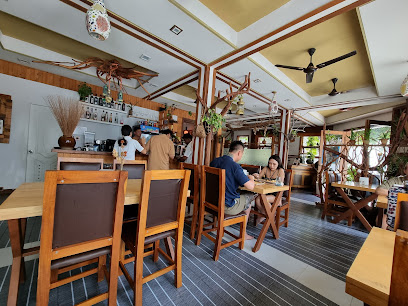
The Cloud Restaurant
Discover exquisite cuisine with breathtaking views at The Cloud Restaurant in Malé – where every meal is a feast for your senses.
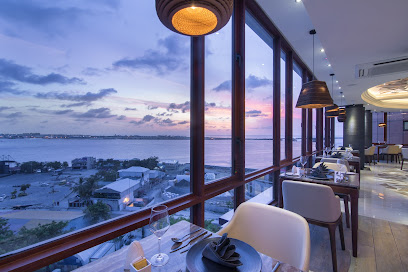
Baan Huraa
Experience authentic Thai cuisine at Baan Huraa amidst breathtaking views in Anantara Veli, Maldives.
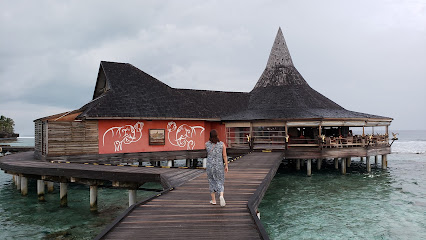
Hotel Fulhoi
Experience authentic Maldivian cuisine at Hotel Fulhoi in Gulhi - where every dish tells a story.
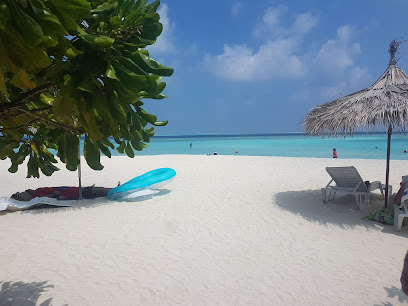
Haruge
Discover the culinary delights of Haruge in Rasdhoo—where local flavors meet international cuisine in a cozy atmosphere.
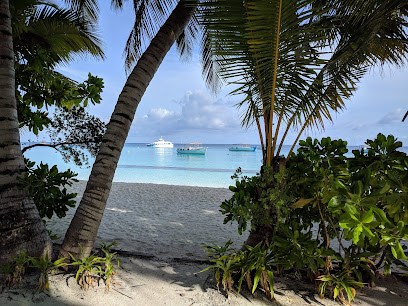
Belle Amie Bistro
Experience exquisite dining at Belle Amie Bistro in Malé—where local flavors meet global cuisine in an inviting atmosphere.
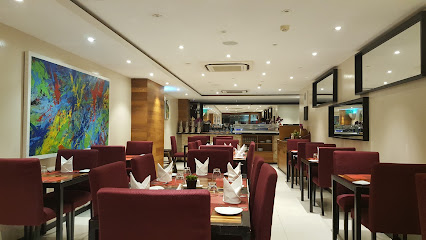
Palm
Experience authentic Maldivian cuisine at Palm Restaurant in Rasdhoo – a culinary gem offering fresh flavors and stunning views.
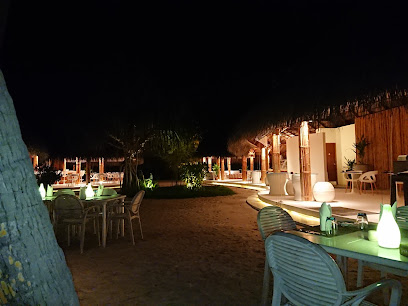
Inguru
Discover Inguru in Rasdhoo - where fresh Maldivian cuisine meets breathtaking views in an unforgettable dining experience.
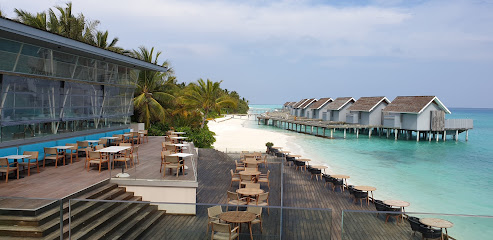
Subsix
Experience exquisite dining under the sea at Subsix in the Maldives - where culinary artistry meets breathtaking marine views.
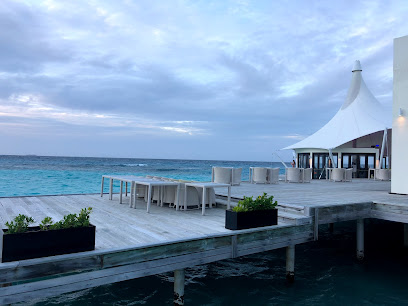
Fushi Cafe
Experience culinary excellence at Fushi Cafe in Gulhi – where local flavors meet international cuisine in an inviting atmosphere.
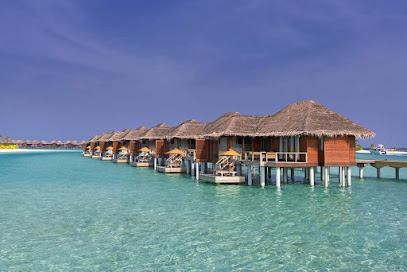
Essential bars & hidden hideouts
Vilu Restaurant & Bar
Savor exquisite Maldivian cuisine with a view at Vilu Restaurant & Bar, an unforgettable dining experience in paradise.
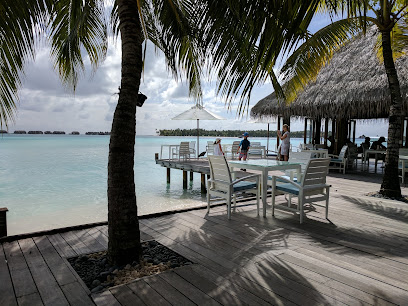
Aura Pool Bar & Cocktail Lab
Experience luxury and relaxation at Aura Pool Bar & Cocktail Lab in the Maldives, featuring exquisite cocktails and delectable tapas by the pool.
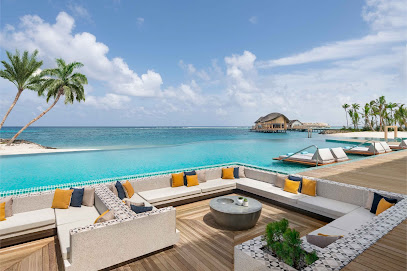
Lohis Bar
Discover Lohis Bar in Huraa, a vibrant oasis offering delicious drinks and stunning views in the heart of the Maldives.
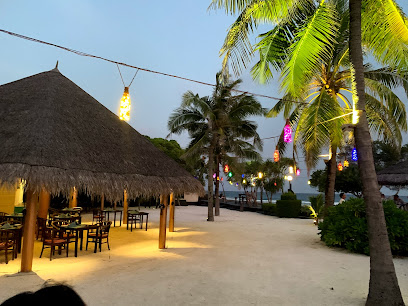
Thari Bar
Discover the tropical charm of Thari Bar in Filaidhoo, where refreshing cocktails meet stunning ocean views in a serene island paradise.
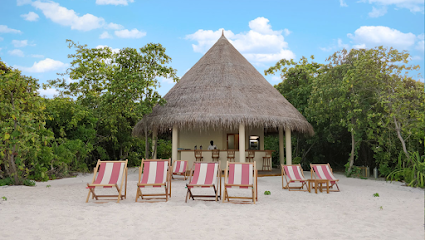
Dhirun'Bar
Experience the vibrant nightlife at Dhirun'Bar in Kunahandhoo, where refreshing cocktails and a lively atmosphere await.

Eden Champagne & Gin Bar
Experience the finest champagne and artisanal gin cocktails in a chic setting at Eden Champagne & Gin Bar, the premier nightlife destination in Malé.
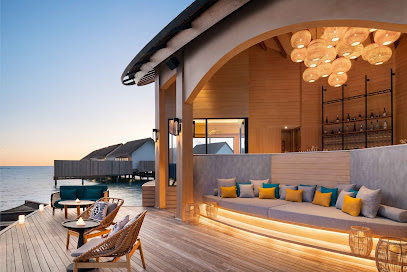
Local Phrases about Athuruga Island
-
- Helloމިއަކު
[Miaku] - Goodbyeދިވެމުޅުވެން
[Dhivehiyameh] - Yesއާ
[Ae] - Noނު
[No] - Please/You're welcomeޝަލީ
[Jaza] - Thank youޝިޞަލް
[Shukuriyya] - Excuse me/Sorryޝާބީން
[Jaziban] - How are you?އަހާފުޅައި
[Ahaafahuri] - Fine. And you?ކެޅި. އައި?
[Keli. Aai?] - Do you speak English?އެކްޓުއައި ބަލައިނަށް?
[Akeedhu bahahinga?] - I don't understandއެޅޭނެއި
[Elaane]
- Helloމިއަކު
-
- I'd like to see the menu, pleaseމިލިކާނާއި މިނިއިތުޅުވަން
[Milikanaindhu] - I don't eat meatއެޅެ މިއިތަކުވެން
[Ela miidhakameh] - Cheers!ޝާބިކުވެން!
[Jazibikameh!] - I would like to pay, pleaseމިކެނާއި މިނިއިތުޅުވަން
[Mikanaaindhu]
- I'd like to see the menu, pleaseމިލިކާނާއި މިނިއިތުޅުވަން
-
- Help!ހިލްފައި!
[Hilfi!] - Go away!ގޮއާލު!
[Hulhu!] - Call the Police!ޕޮލިސެން ގުޅޭއި!
[Pulisigulhi!] - Call a doctor!ޑޯކޭއި!
[Doktai!] - I'm lostމިކެނައި އަލެވުނަށް
[Mikanaai aluvefaai] - I'm illމިކެނައި އިލލުވުނަށް
[Mikanaai illuvaai]
- Help!ހިލްފައި!
-
- I'd like to buy...މިކެނައި މިކަލައި
[Mikanaai mikalei] - I'm just lookingމިކެނައި މިތަކުވެން
[Mikanaai miyakameh] - How much is it?ހަމަދު އެއި?
[Hamadhoo aai?] - That's too expensiveތާވަމަވެނަށް އައި
[Dhaahamaa aai] - Can you lower the price?ހަމަވެނަށް މިއައިވިކަން
[Hamahamei mi aai vikkan?]
- I'd like to buy...މިކެނައި މިކަލައި
-
- What time is it?ހަމަދު މިއަށާއި?
[Hamadhoo miaahuri?] - It's one o'clockއެއި ދާލައި
[Aai dhaalai] - Half past (10)ހަލައި (10)
[Hulai (10)] - Morningމައިދަށި
[Maidhashi] - Afternoonއަލަމަނަ
[Alaamaa] - Eveningމަރަދަ
[Maradha] - Yesterdayއެއިމަނަ
[Aai maana] - Todayމަބަދެނަ
[Mabaden] - Tomorrowޓޯމަދު
[Dhomadhoo] - 11
[1] - 22
[2] - 33
[3] - 44
[4] - 55
[5] - 66
[6] - 77
[7] - 88
[8] - 99
[9] - 1010
[10]
- What time is it?ހަމަދު މިއަށާއި?
-
- Where's a/the...?މިއަކަށް މަސްއަލާ?
[Miakamei masala?] - What's the address?ހަމަދު ބަލައިނަށް?
[Hamadhoo bahahinga?] - Can you show me (on the map)?ހަމަވެނަށް މިއައިވިކަން (މަޕުލާ)?
[Hamahamei mi aai vikkan? (Mapulha)] - When's the next (bus)?ވިނައް އައި އަހައްމައި (ބަސް)?
[Vinai aai aamai (Basu)?] - A ticket (to ....)މިކެނައި (.... އަށާއި)
[Mikanaai (.... aashai)]
- Where's a/the...?މިއަކަށް މަސްއަލާ?
History of Athuruga Island
-
Athuruga Island, like many islands in the Maldives, has a history that dates back to ancient times. The first settlers are believed to have arrived more than 2,500 years ago, predominantly from South India and Sri Lanka. These early inhabitants were skilled in fishing and seafaring, laying the foundation for the island's thriving marine culture.
-
Before the advent of Islam in the 12th century, the Maldives, including Athuruga Island, was predominantly Buddhist. Archaeological evidence, such as statues and stupas, indicates the significant influence of Buddhism on the local culture and practices. Temples and monasteries were central to community life, serving both spiritual and educational purposes.
-
In the 12th century, Islam was introduced to the Maldives, and Athuruga Island was no exception. The conversion is attributed to a visiting Islamic scholar from Morocco named Abu al-Barakat. The island became part of a larger Islamic sultanate, and mosques replaced the Buddhist temples. This shift significantly influenced the island's cultural and social practices, aligning them with Islamic traditions.
-
Throughout the 16th and 17th centuries, the Maldives, including Athuruga Island, experienced various colonial encounters. The Portuguese briefly occupied the Maldives in the mid-16th century, but their influence was short-lived. The Dutch and British also showed interest in the region, but the Maldives managed to maintain a degree of autonomy through strategic diplomacy.
-
In the late 19th century, the Maldives became a British protectorate. Although the British did not directly administer Athuruga Island, the islanders were subject to the broader political and economic policies imposed by the British. This period saw the introduction of modern education and healthcare, which had lasting impacts on the island's development.
-
The Maldives gained full independence from Britain in 1965. Athuruga Island, like many other islands, began to modernize rapidly. Infrastructure development, including improved transportation and communication systems, transformed the island. The tourism industry also started to flourish, attracting visitors from around the world and significantly boosting the local economy.
-
Despite the rapid modernization and influx of tourists, Athuruga Island has managed to preserve its rich cultural heritage. Traditional music, dance, and crafts are still practiced and celebrated by the locals. The island's mosques and historical sites are maintained as symbols of its enduring cultural and religious history.
Athuruga Island Essentials
-
Athuruga Island is accessible via Velana International Airport (MLE) in Malé, the capital of the Maldives. From Malé, you can take a seaplane transfer directly to Athuruga Island, which typically takes around 25-30 minutes. Seaplane transfers are usually arranged by your resort and operate during daylight hours. Alternatively, you can take a domestic flight to Maamigili Airport followed by a speedboat transfer to the island.
-
Athuruga Island is small and walkable, so no internal transportation is needed. Most resorts offer bicycles for guests to use. To explore nearby islands or for excursions, resorts provide boat trips. These can be arranged through your resort’s concierge or tour desk.
-
The official currency of the Maldives is the Maldivian Rufiyaa (MVR), but US dollars are widely accepted. Credit cards are commonly used in resorts, hotels, and most shops. It's a good idea to carry some cash for small purchases or tips. ATMs are available in Malé, but they are scarce on smaller islands, so plan accordingly.
-
Athuruga Island is generally very safe for tourists. Resorts have their own security measures in place. There are no high-crime areas targeting tourists on the island. However, it's always wise to take standard precautions, such as securing your belongings and avoiding isolated areas at night.
-
In case of an emergency, contact your resort’s front desk or concierge for immediate assistance. Resorts usually have medical facilities and staff on hand. For urgent medical emergencies, you may be transported to a hospital in Malé. It is highly recommended to have travel insurance that covers medical expenses and emergency evacuations.
-
Fashion: Do wear light, breathable clothing suitable for a tropical climate. Swimsuits are acceptable on the beach, but modest clothing is recommended in public areas. Avoid wearing revealing clothing in dining areas. Religion: Do respect local customs and dress modestly when visiting inhabited islands. Public Transport: Public transport is not available on Athuruga Island, but do use the resort’s transport services responsibly. Greetings: Do greet locals with a smile or a slight nod. Eating & Drinking: Do try local Maldivian dishes offered at the resort. Don't waste food, as it is considered disrespectful.
-
To experience Athuruga Island like a local, engage in activities such as snorkeling or diving to explore the rich marine life. Participate in cultural activities offered by the resort, such as Maldivian cooking classes or traditional music and dance performances. Don’t miss the opportunity to go on a fishing excursion or a sunset cruise for a truly local experience.
Nearby Cities to Athuruga Island
-
Things To Do in Dhigurah
-
Things To Do in Thoddoo
-
Things To Do in Fulidhoo
-
Things To Do in Guraidhoo
-
Things To Do in Malé
-
Things To Do in Hulhumalé
-
Things To Do in Huraa
-
Things To Do in Thulusdhoo
-
Things To Do in Maafushi
-
Things To Do in Trivandrum
-
Things To Do in Kanyakumari
-
Things To Do in Kochi
-
Things To Do in Bentota
-
Things To Do in Hikkaduwa
-
Things To Do in Colombo







